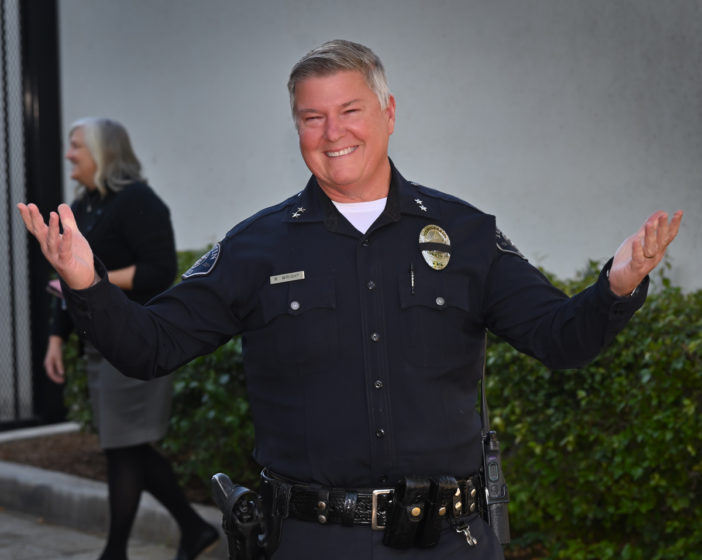Deputy Chief Bob Wright is Tustin to the core.
He grew up in the area, attended local schools, earned a position at the Tustin Police Department, and spent his life serving the Tustin community.
He has been repaid in more ways than one. A fellow officer set him up on a blind date and he’s now been married to his wife, Dyan, for nearly 30 years.
Now, after more than 32 years with the Tustin Police Department, Wright is turning in his badge and gun for retirement.
“This is the town I grew up in, so it’s always been more than just a place of work,” Wright said. “It’s my hometown, and that’s always had a special place in my heart.”
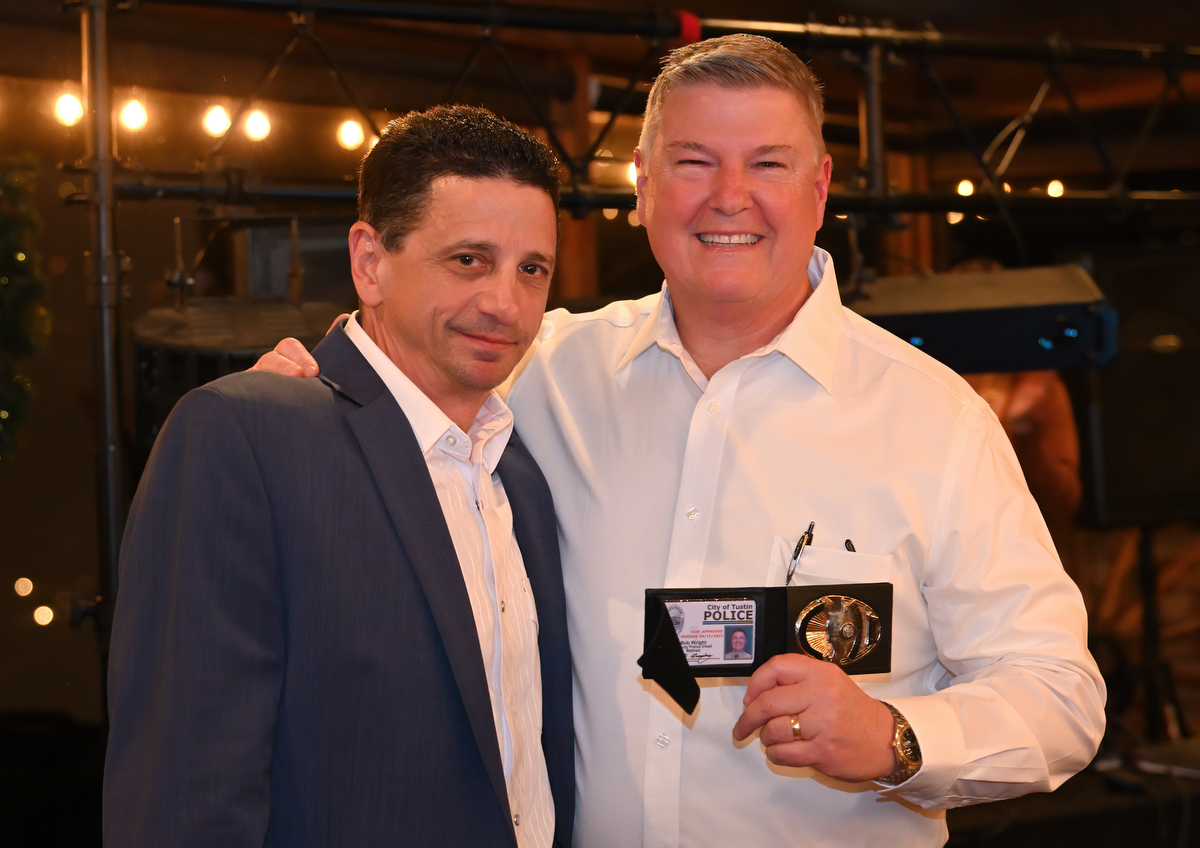
Tustin Police Chief Stu Greenberg, left, gives retiring Deputy Chief Robert Wright his retirement badge during Wright’s retirement dinner.
Photo by Steven Georges/Behind the Badge
“He’s one of the best people I’ve ever worked with,” said Tustin Police Chief Stu Greenberg, who promoted Wright to Deputy Chief in July 2020. “Bob has been the perfect balance to me. He slows me down when I’m going too fast, and he brings a sense of calm to everything.
“He’s done just a tremendous job. He’s a guy that you always want to be around, you want your family to be around. He impresses everybody. He’s well respected, he’s loved… he’s a sincere individual, ethical, he’s everything you want in a law enforcement leader and in a human being.”
From ‘Adam-12’ to COVID-19
The Foothill High School and Cal State Fullerton graduate has a deep knowledge of the city, which has been a great asset in a department that prides itself on community policing. Wright is the first in his family to go into law enforcement, inspired as a child by television shows such as “Adam-12.”
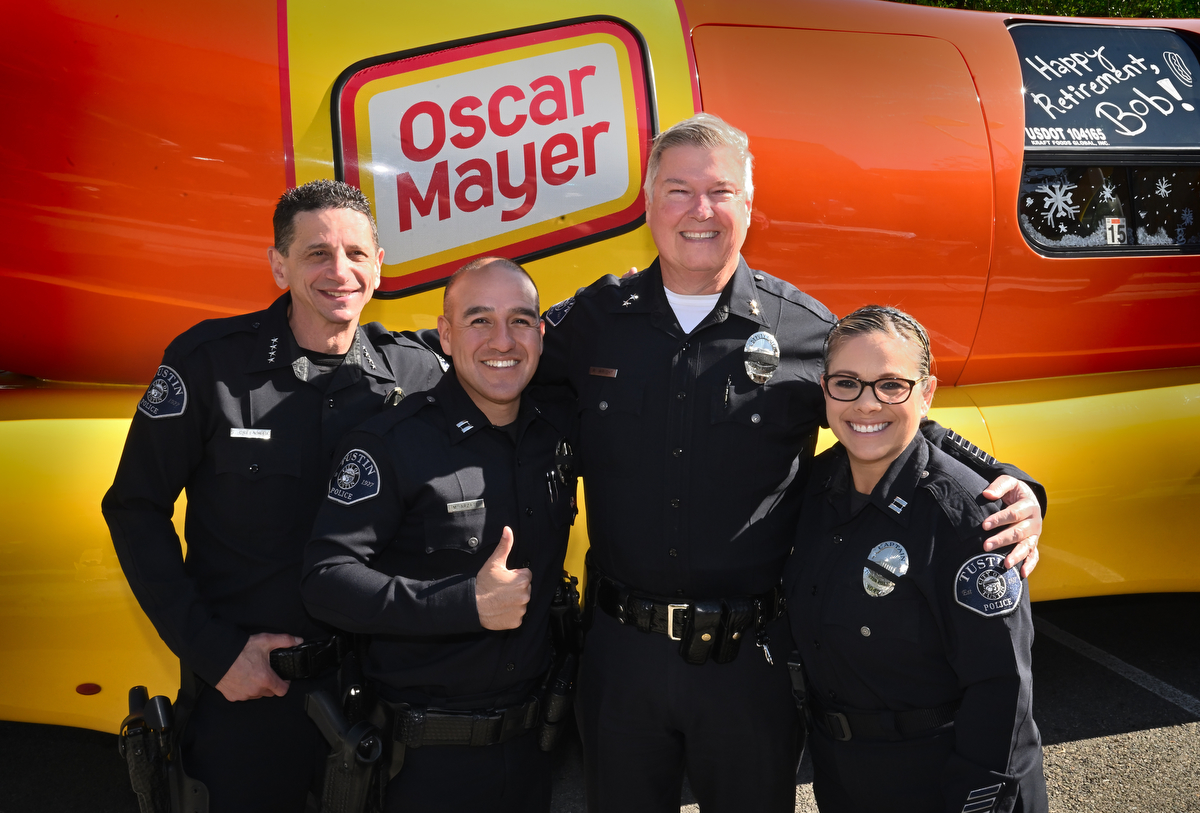
Retiring Tustin Deputy Chief Robert Wright, third from left, gathers in front of the Oscar Mayer Wienermobile with Tustin Police Chief Stu Greenberg, left, Capt. Manny Arzate and Capt. Stephanie Nichols.
Photo by Steven Georges/Behind the Badge
Wright has held many roles at TPD: A patrol officer, field training officer, personnel officer overseeing hiring and background checks, patrol sergeant overseeing the K9 Unit, sergeant in charge of the Special Enforcement Detail (now the Gang Reduction and Directed Enforcement Unit), sergeant in charge of the General Investigations Unit, lieutenant in charge of Professional Standards, Public Information Officer and department spokesperson, and Deputy Chief.
He has enjoyed seeing the men and women he trained get promoted, and he’s been around long enough to work with the children of officers he learned from early in his career.
“It’s always nice to see those that you’ve had an impact on become successful,” he said.
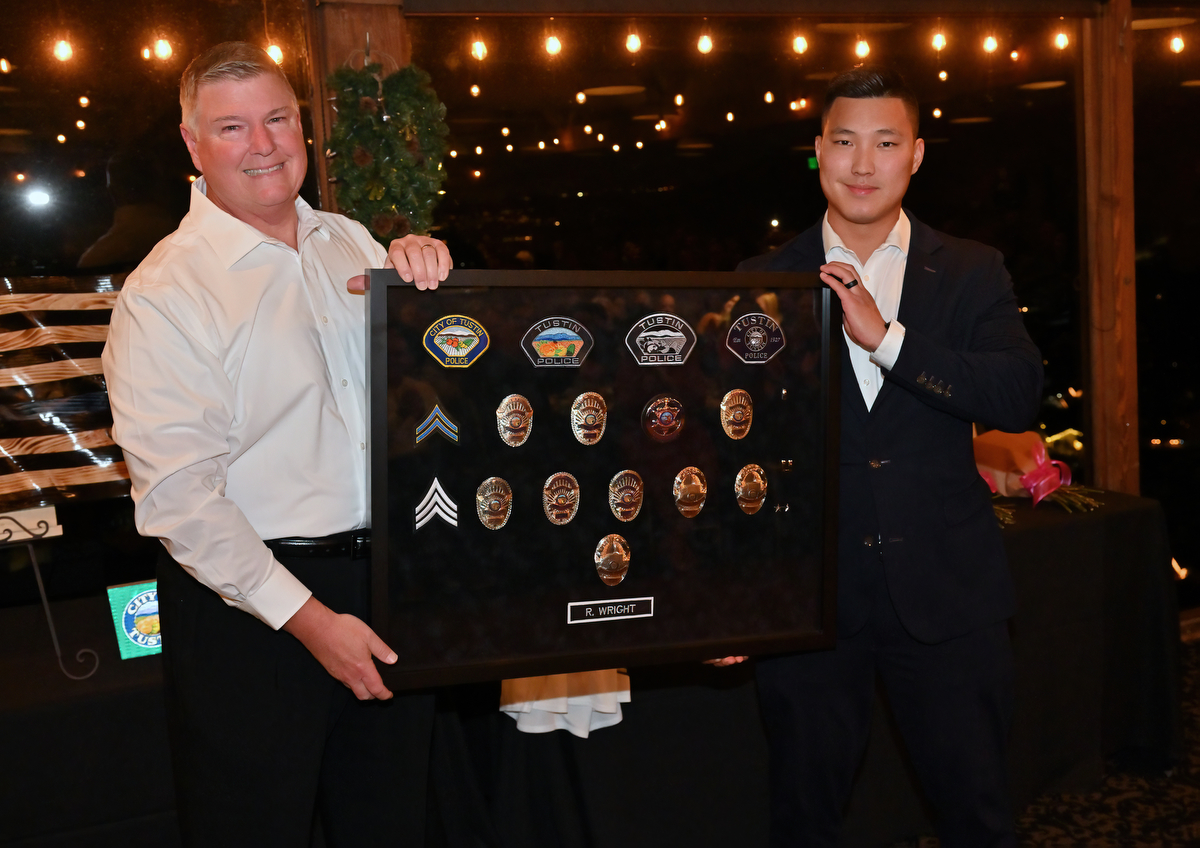
Tustin Police Deputy Chief Robert Wright, left, is presented with a shadow box displaying his career as a Tustin law enforcement officer, by TPOA President, Andrew Ok, during his retirement dinner.
Photo by Steven Georges/Behind the Badge
He’s watched the department evolve over the past 32 years, from the patrol cars — then a blue and white Chevy Caprice and a spiral notebook to today’s Dodge Chargers equipped with mobile data computers— to the community policing and upgraded tools used today.
“In 32 years, the idea of police work has certainly changed immensely,” Wright said. “At one point we were given a four-month academy, and now it’s six months. We were handed keys to a car and basically told to go handle calls.”
“The training we give our people is more significant and better than what we received when I was starting out,” he added. “Our people are better trained, but they also have to deal with a lot more stricter legislation and they have to jump through a lot more hoops than we did.
“There’s a lot that goes into a policeman’s job nowadays that I didn’t have back in the day.”
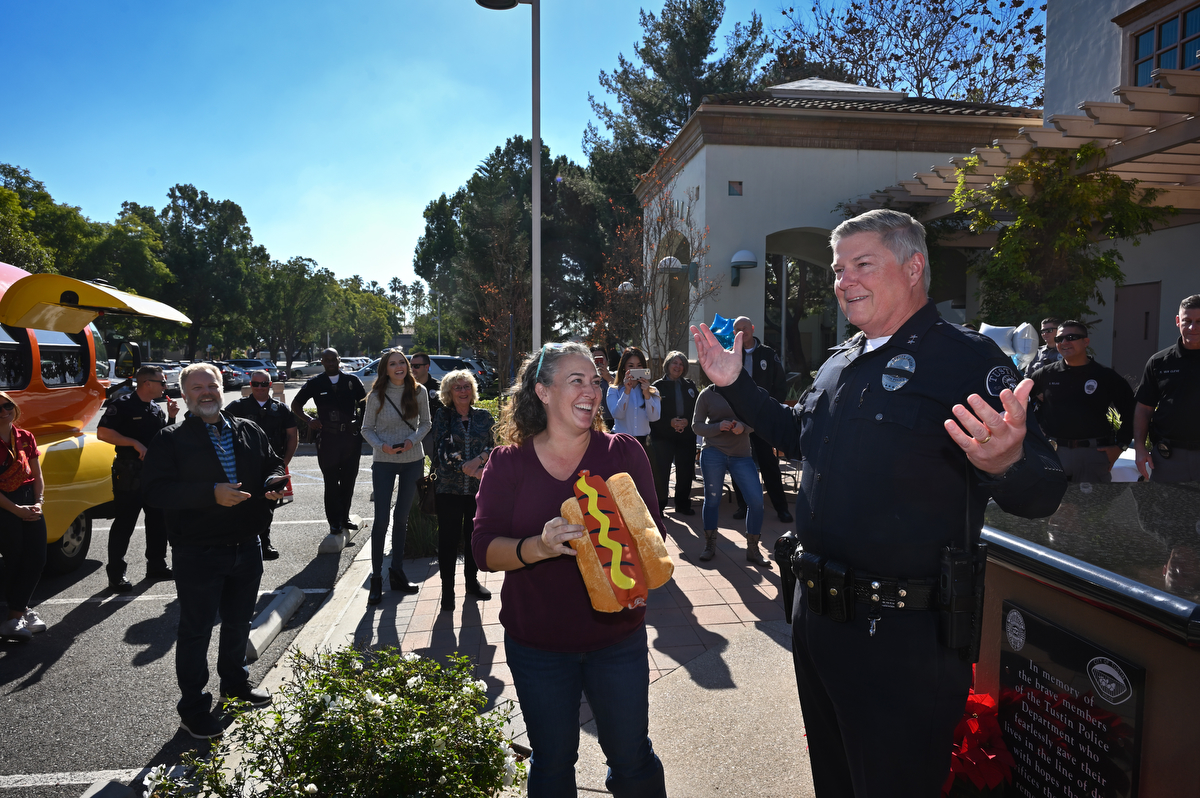
Wendi Forrest, executive director of the Tustin Police Foundation, greets Retiring Tustin Deputy Chief Robert Wright during a surprise gathering in front of police headquarters.
Photo by Steven Georges/Behind the Badge
Even the crimes have evolved. Though there will always be robberies, assaults, fights, and what Wright calls “street-level crime,” electronic and internet crimes, as well as road rage assaults, are more common, he says.
“The degree of smart criminals has gone up, just like the intelligence of detectives,” Wright said.
Many of the changes within the department, such as body cameras to improve accountability, are a response to what the public expects from today’s law enforcement officers, he said.
“We work for the public and I know that day in and day out, 99.9 percent of the officers throughout the nation are doing a good job,” Wright said. “And this just validates that.”

Retiring Tustin Deputy Chief Robert Wright gives a thumbs-up as he is surprised with a visit from the Oscar Mayer Wienermobile at police headquarters.
Photo by Steven Georges/Behind the Badge
Wright says he’s proud of everything the department has endured in the past few years — anti-police protests, demonstrations, general civil unrest, and the COVID-19 pandemic.
“All credit goes to the guys and girls that are boots on the ground,” he said. “They were able to maintain professionalism and handle everything efficiently.”
‘The darkest day in Tustin’
With all the good Wright has done, policing can also have its dark moments. From his first day to his last day, Wright wore his vest daily as a physical reminder of the job’s dangers.
“I remember the darkest day in Tustin,” he said, noting that he was a sergeant in investigations at the time. “We had a mass shooting in the city. It was a killing spree countywide, and it started in South County. I remember getting the call.”
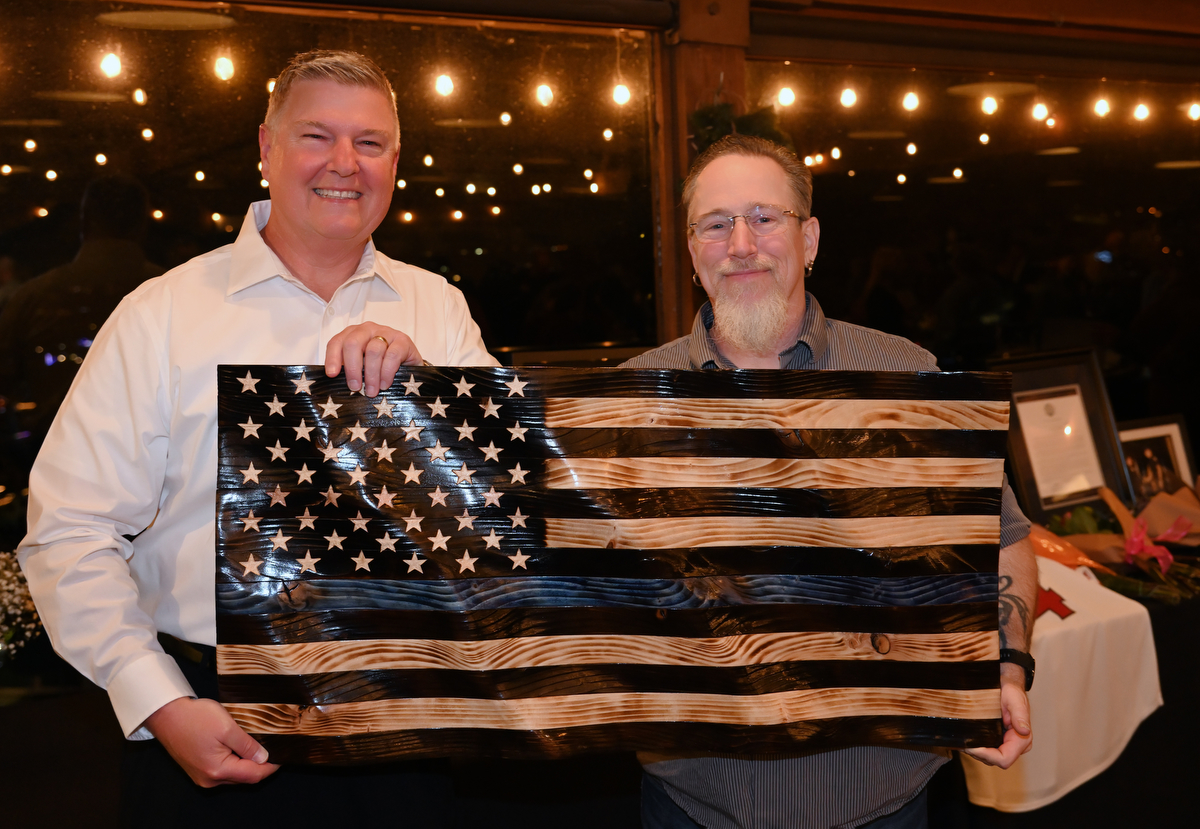
Tustin Police Deputy Chief Robert Wright holds a wooden Thin Blue Line American flag made by Don Duff, right, during Wright’s retirement dinner.
Photo by Steven Georges/Behind the Badge
The gunman killed three people (two in Tustin) before he shot and killed himself in Orange.
Wright also remembers being sent to assist during the 1992 Los Angeles riots.
“I was wide-eyed,” he recalls. “I think the career does change you. You see a lot of bad, and I think it makes you appreciate the good. I am not the same person I was in 1990. Life just changes you, I think. The things we see and do during this career does impact you.”
Most officers do this job because they care about the community, Wright said. “They’re good people. They do this to help make the world a better place.”
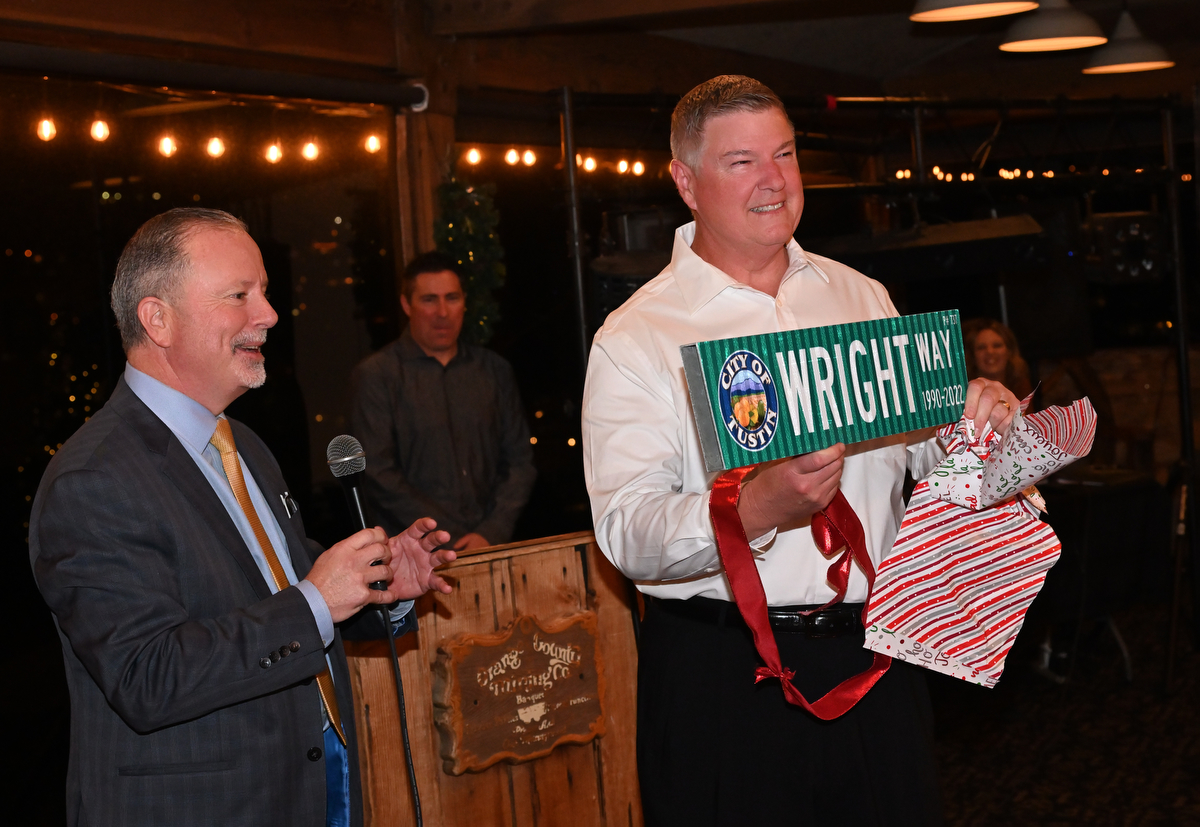
Retiring Tustin Police Deputy Chief Robert Wright, left, is presented with a Tustin street sign, Wright Way, in honor of his retirement.
Photo by Steven Georges/Behind the Badge
A community hero
Wright has been indispensable not only with the police department, but also the community. As a board member and volunteer with the Tustin Public Schools Foundation, he’s assisted with the annual Dino Dash fundraiser and been chairman of the scholarship committee.
“He is passionate about helping public schools and students, and he brought his own sense of humor to everything,” said Carol Burby Garrett, Executive Director of the Tustin Public Schools Foundation. “The letters he’d write to board members asking them to be on the committee always made us chuckle.”
Wendi Forrest, Executive Director for the Tustin Police Foundation, worked with Wright for nearly five years.
“It doesn’t take long of knowing Bob to appreciate the general, absolute pure joy of a human he is,” Forrest said. “He has a heart of gold and tells some of the best worst jokes you’ve ever heard.”
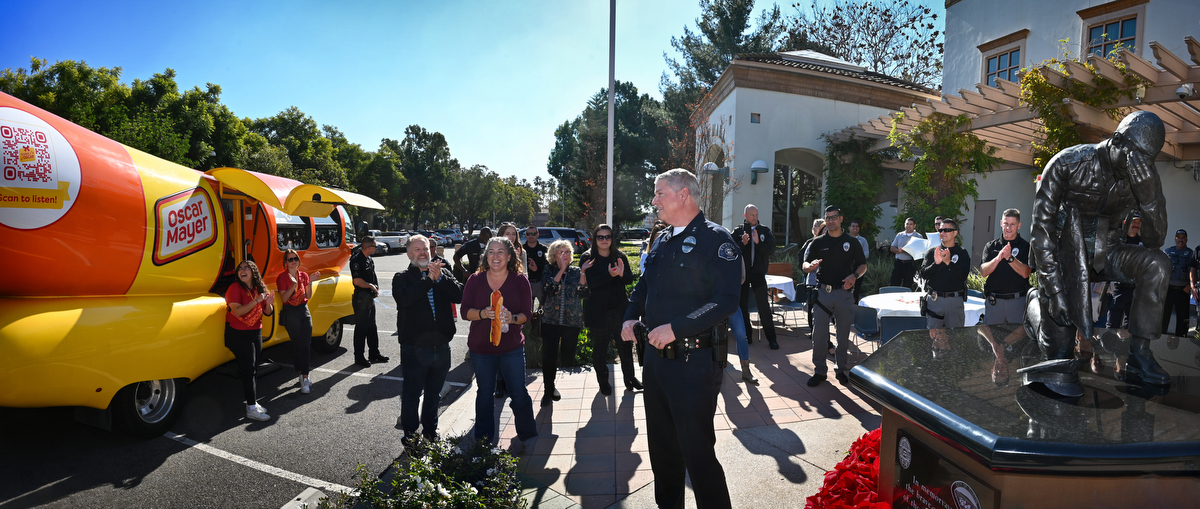
Retiring Tustin Deputy Chief Robert Wright smiles as he is surprised by a gathering of his friends, and the Oscar Mayer Wienermobile, in front of police headquarters.
Photo by Steven Georges/Behind the Badge
Wright retired earlier this year from the Tustin Public Schools Foundation board as the longest-serving board member, serving over 15 years.
“We’re always sad to see someone who’s so embedded in the community leave us, but he deserves it,” said Tustin City Manager Matthew West, who has worked with Wright for over 20 years.
Wright also volunteered as a pageant auditor for the Ms. American program, specifically for Miss Garden Grove, as well as pageants in Anaheim, Fullerton, Yorba Linda, Placentia and Los Angeles County. The role began as a favor to Stacy Margolin, a former crime prevention officer turned Executive Director of the Miss Garden Grove pageant, when she asked Wright to help tally scores.
“He’s my go-to and an all-around good guy,” Margolin told Behind the Badge in 2015. “Bob is just somebody you can count on.”
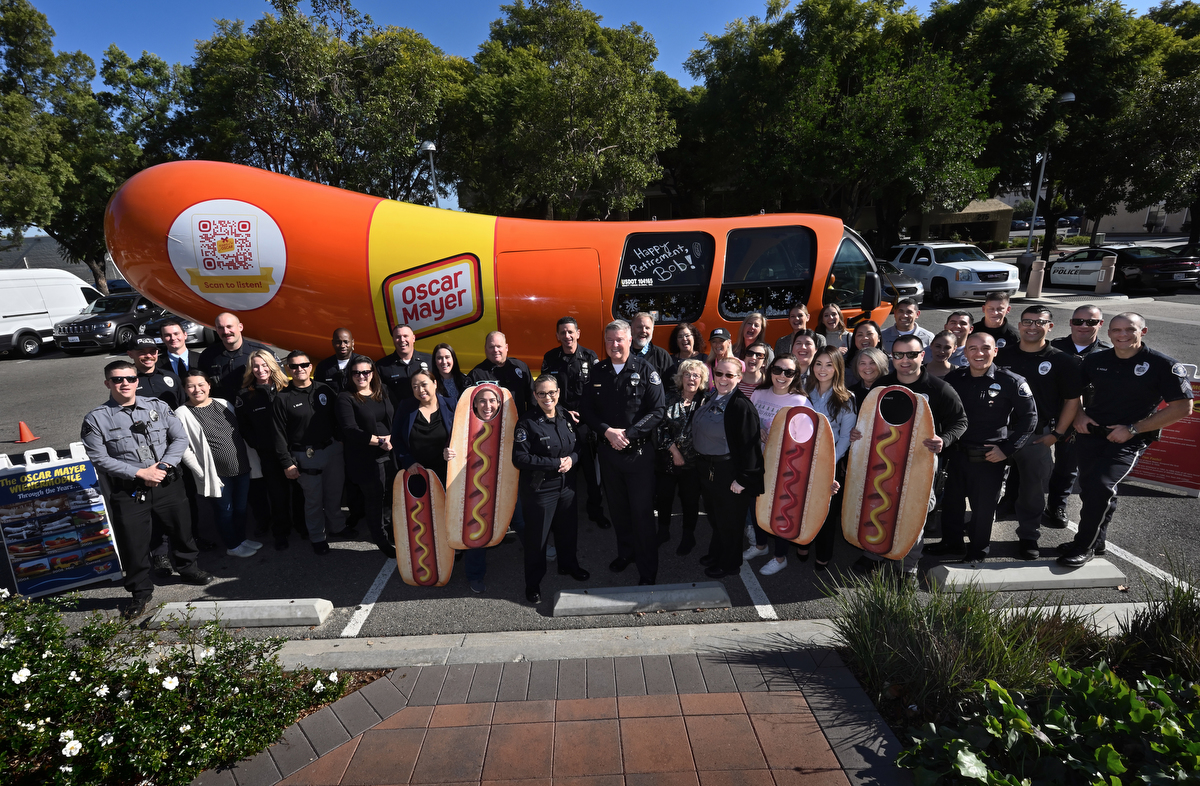
Retiring Tustin Deputy Chief Robert Wright, center, with friends and the Oscar Mayer Wienermobile, for a surprise going away party.
Photo by Steven Georges/Behind the Badge
Those close to Wright know he and a few friends spend their “dog day afternoons” ranking hot dogs around Southern California and posting reviews on their social media accounts.
The Tustin Police Department sent him into retirement in style, first with a surprise visit from the Oscar Meyer Weinermobile — and a once-in-a-lifetime chance to ride around town in the vehicle — and later with a formal celebratory dinner at Orange Hill Restaurant.
Focusing on the future
Though Wright is retiring, his friends and co-workers fully expect to see him around town.
“He’s such a wonderful person to work with and such an absolute blessing to have in this community,” Forrest said. “I’m sure we’ll see him in lots of different roles in the community from here on out. We’re better off for having him and the things he’s done.”
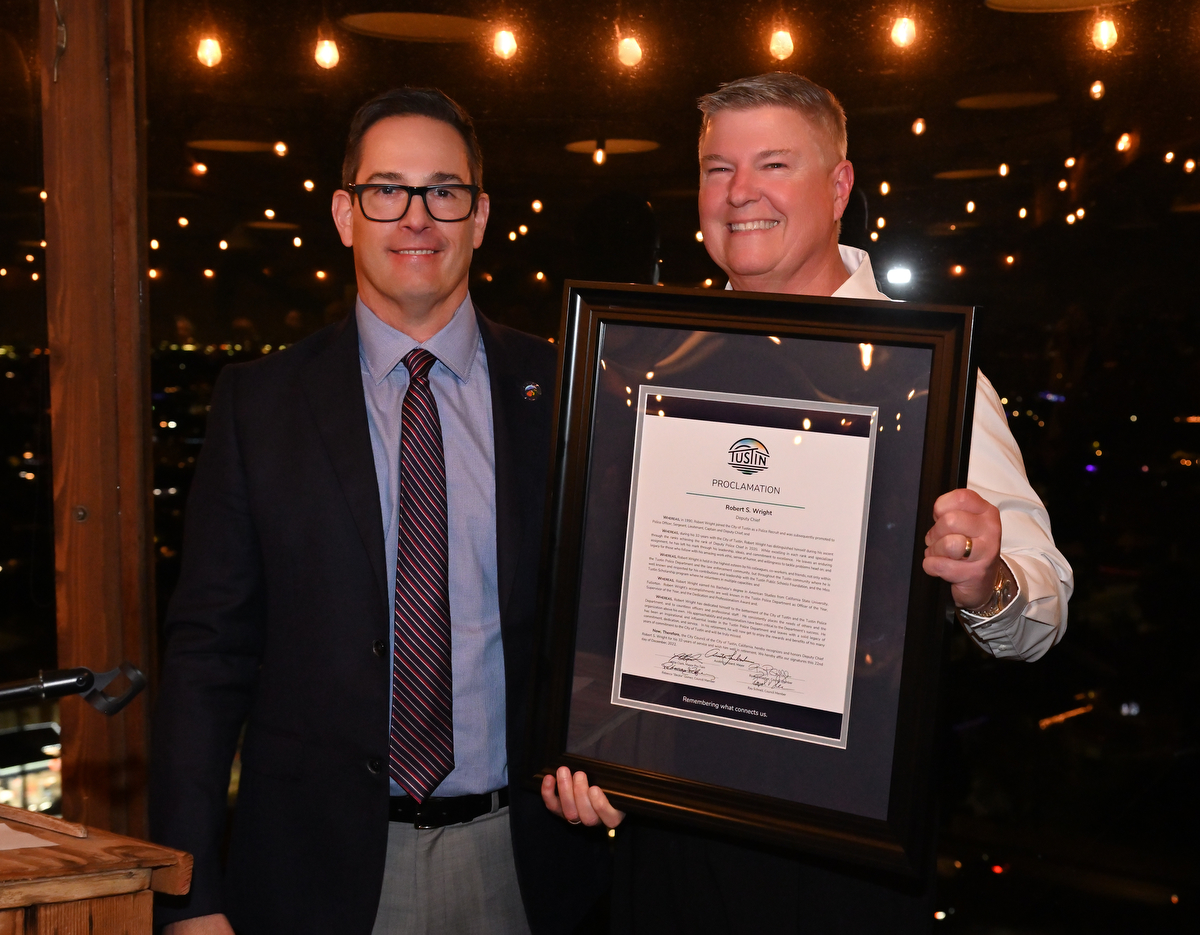
Tustin City Council Member Ray Schnell, left, honors retiring Deputy Chief Robert Wright with a city proclamation describing what Wright has done for the city during his law enforcement career.
Photo by Steven Georges/Behind the Badge
Wright’s life outside of work has never been dull. He’s an ordained minister and has officiated weddings for friends and colleagues, has emceed countless local events, rated countless hot dogs, and he’s great at making balloon animals.
Now that he’s reached retirement, Wright plans to travel the world, attend Angels games, and spend more time with his wife and three daughters.
“I’ve loved this career,” he said, “and I look forward to the next half of my life with family and friends. I have no regrets about this career at all. I’ve loved every day I’ve come here, and every time I’ve put the uniform on. I’m proud to wear our patches.”
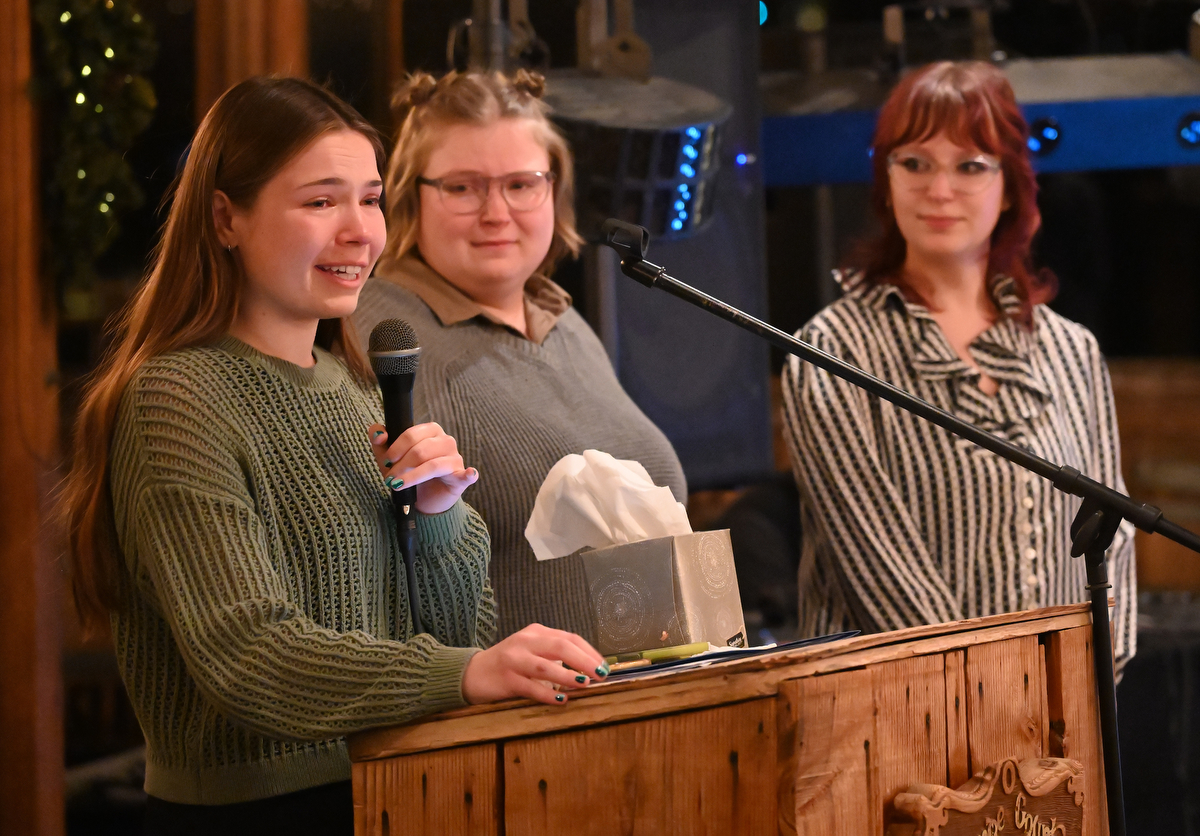
Retiring Tustin Police Deputy Chief Robert Wright’s kids talk about their father during his retirement dinner.
Photo by Steven Georges/Behind the Badge
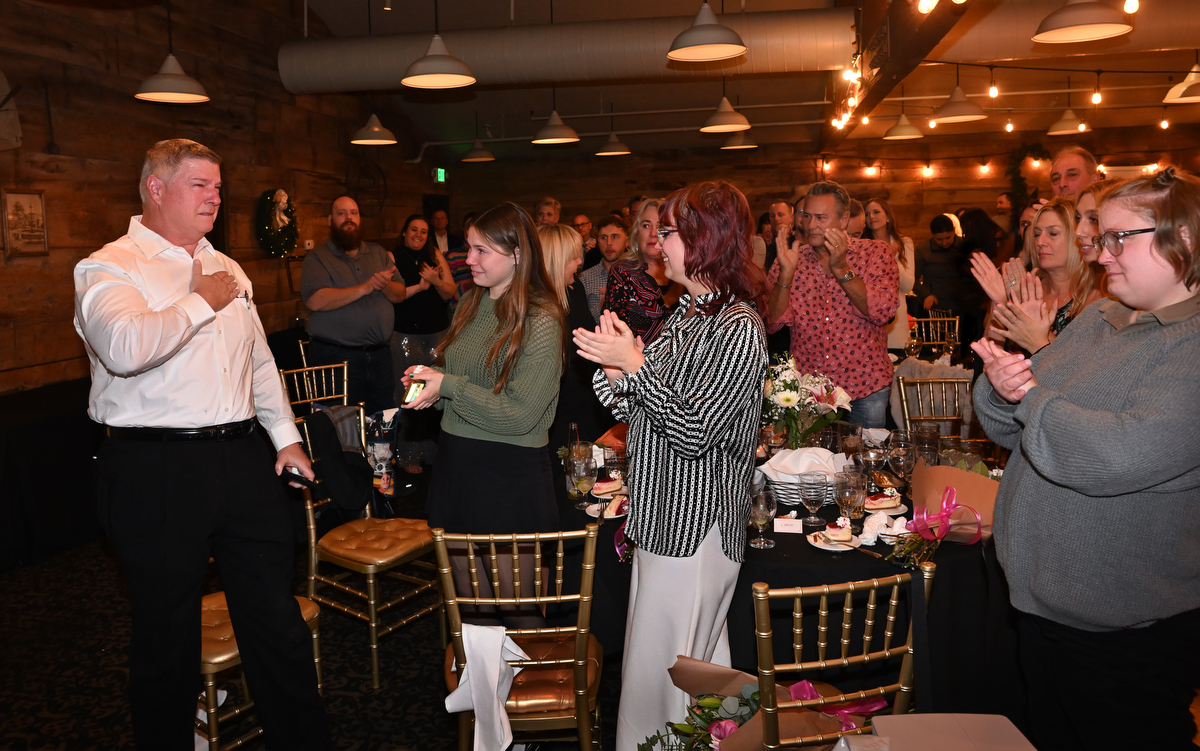
Tustin Police Deputy Chief Robert Wright, left, is moved as he receives a standing ovation at the conclusion of his retirement dinner.
Photo by Steven Georges/Behind the Badge
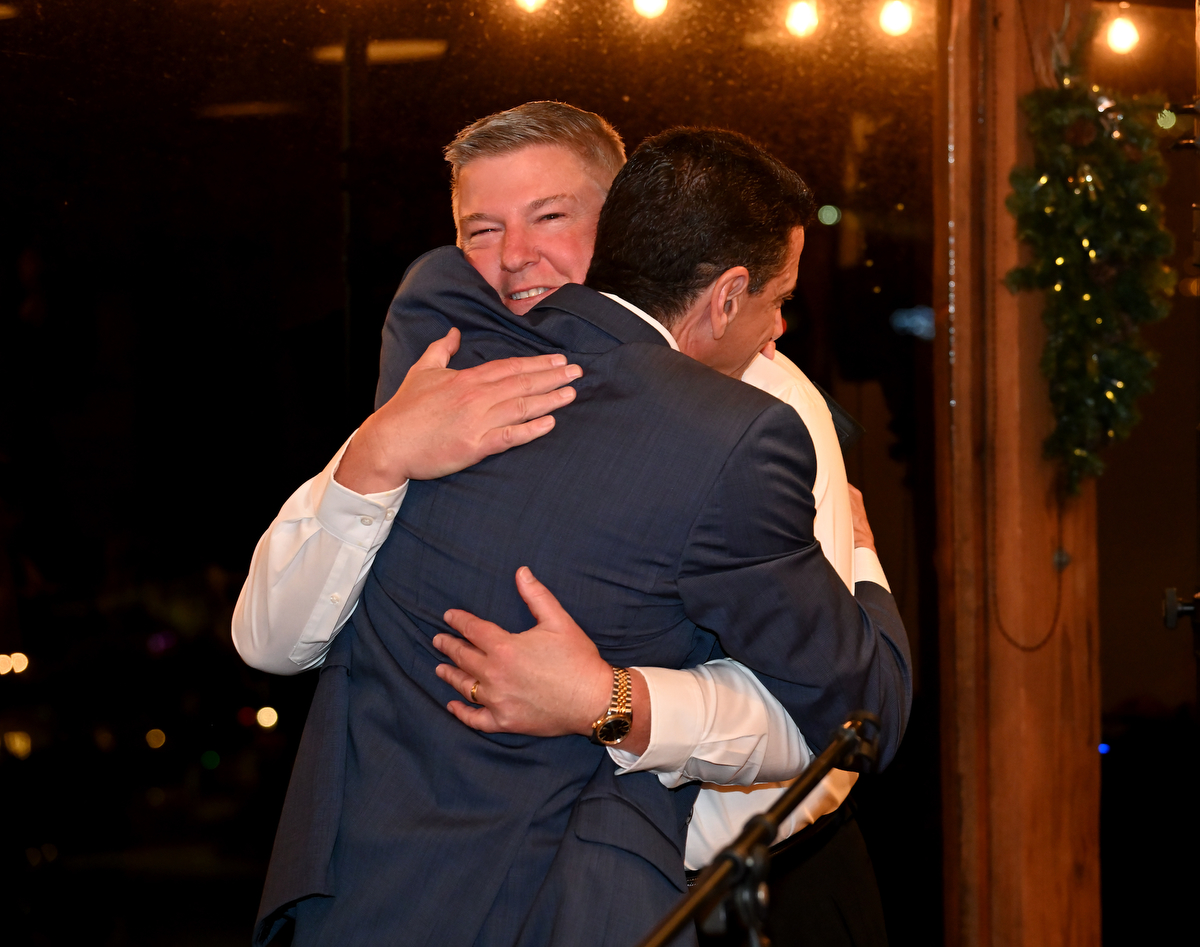
Tustin Police Chief Stu Greenberg gives retiring Deputy Chief Robert Wright a hug during Wright’s retirement dinner.
Photo by Steven Georges/Behind the Badge
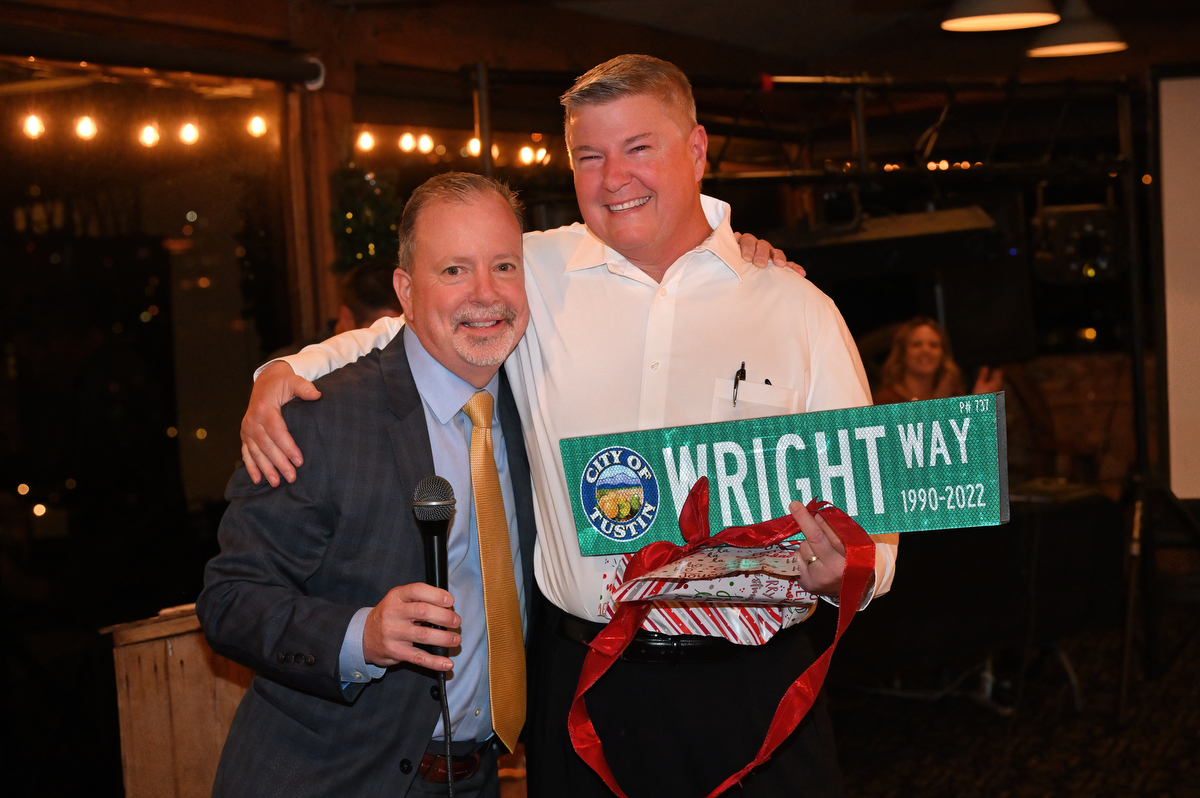
Retiring Tustin Police Deputy Chief Robert Wright, left, receives a Tustin street sign, Wright Way, in honor of his retirement.
Photo by Steven Georges/Behind the Badge
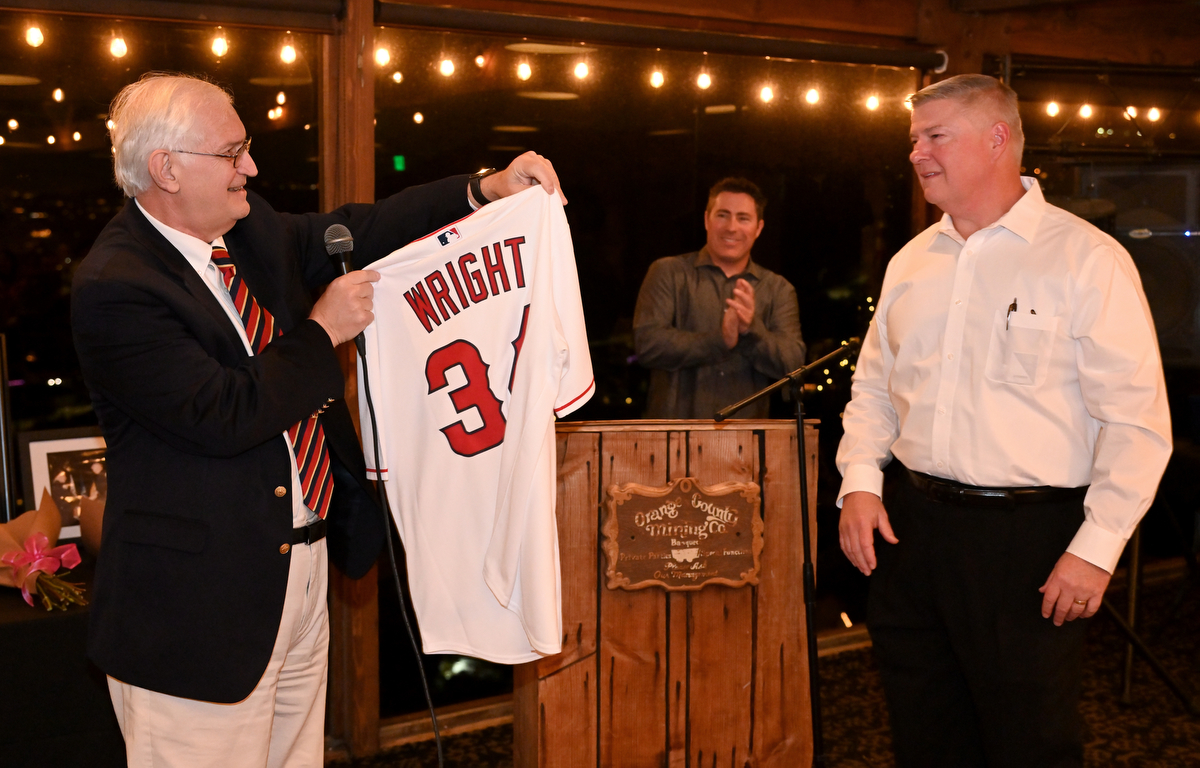
Chief Advisory Board Member, Osman Cemal Tashan, left, presents retiring Police Deputy Chief Robert Wright with an Angels Baseball jersey with Wright’s name on it during his retirement dinner.
Photo by Steven Georges/Behind the Badge
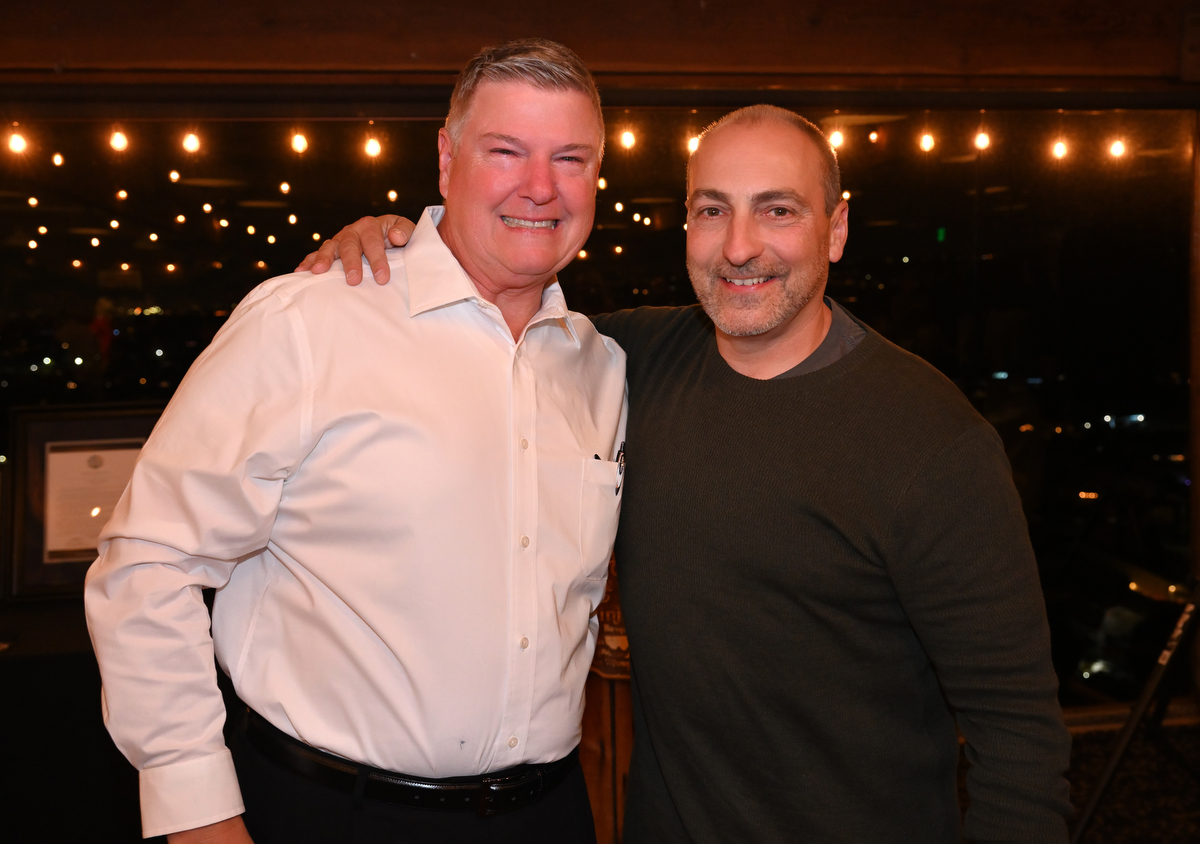
Retiring Tustin Police Deputy Chief Robert Wright, left, with former Tustin Police Chief Charles Celano at Wright’s retirement dinner.
Photo by Steven Georges/Behind the Badge
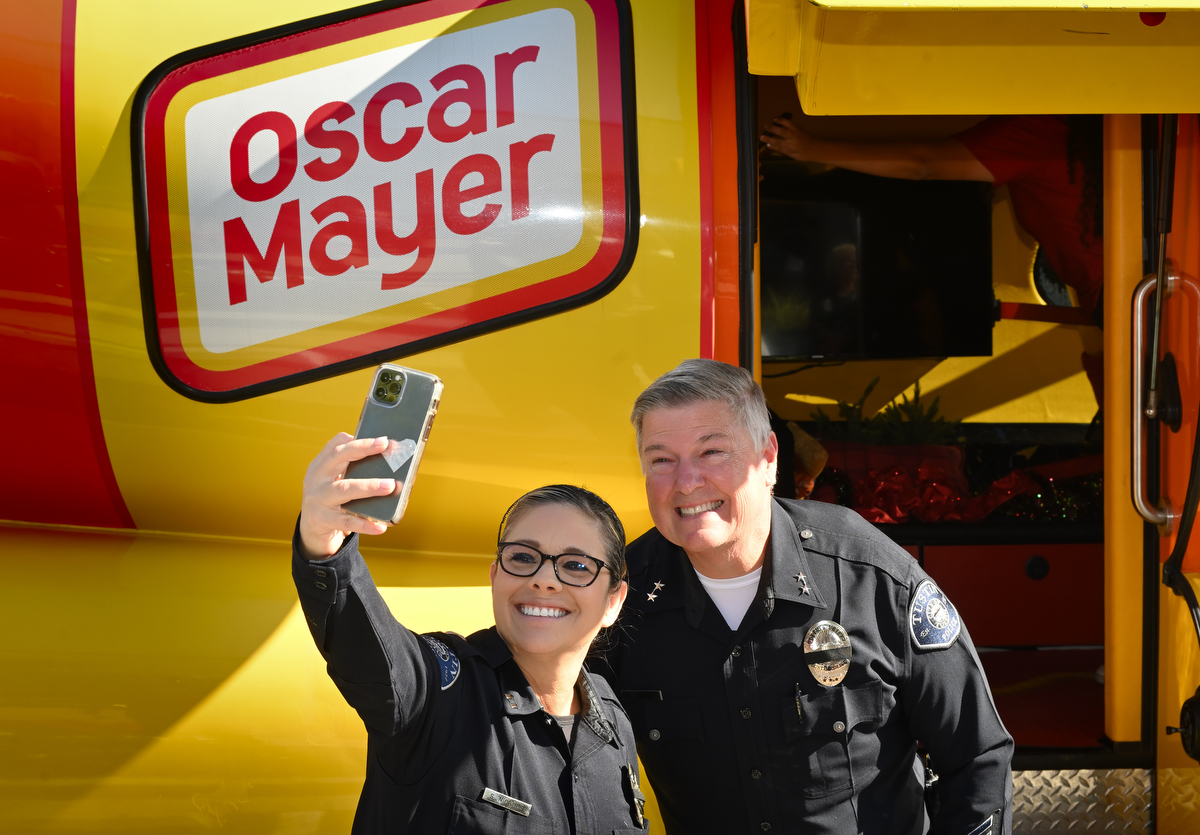
Tustin PD Capt. Stephanie Nichols takes a selfie with Retiring Deputy Chief Robert Wright in front of the Oscar Mayer Wienermobile.
Photo by Steven Georges/Behind the Badge
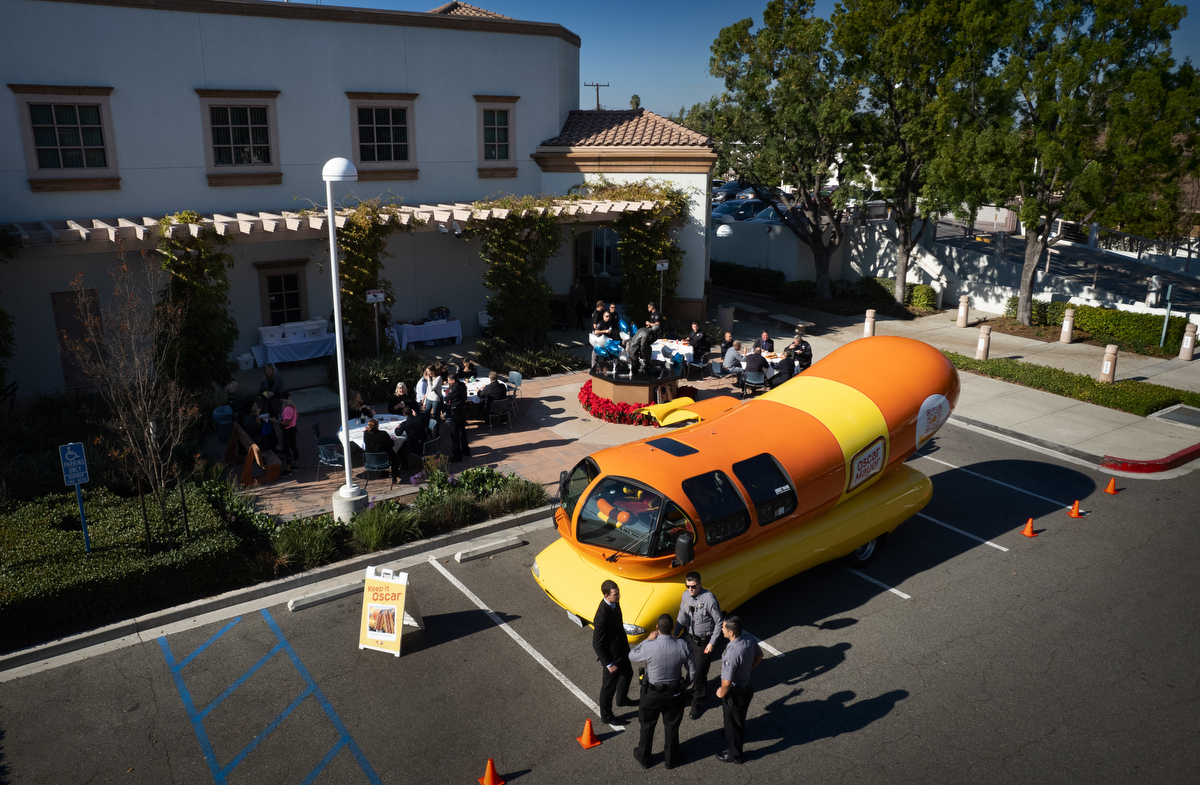
Friends of Retiring Tustin Police Deputy Chief Robert Wright gather in front of police headquarters with the Oscar Mayer Wienermobile for a surprise retirement party.
Photo by Steven Georges/Behind the Badge
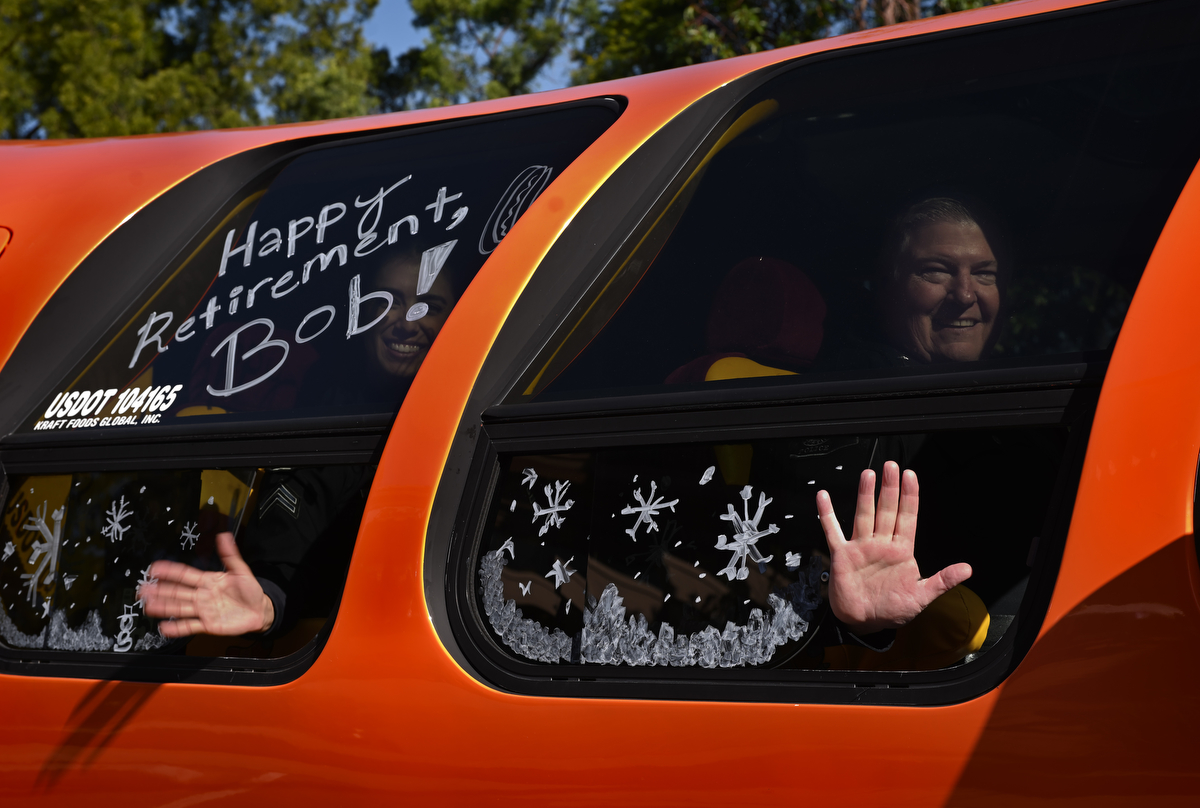
Tustin PD Officer Michelle Jankowski, left, and Deputy Chief Robert Wright wave from the window as they go for a ride inside the Oscar Mayer Wienermobile.
Photo by Steven Georges/Behind the Badge
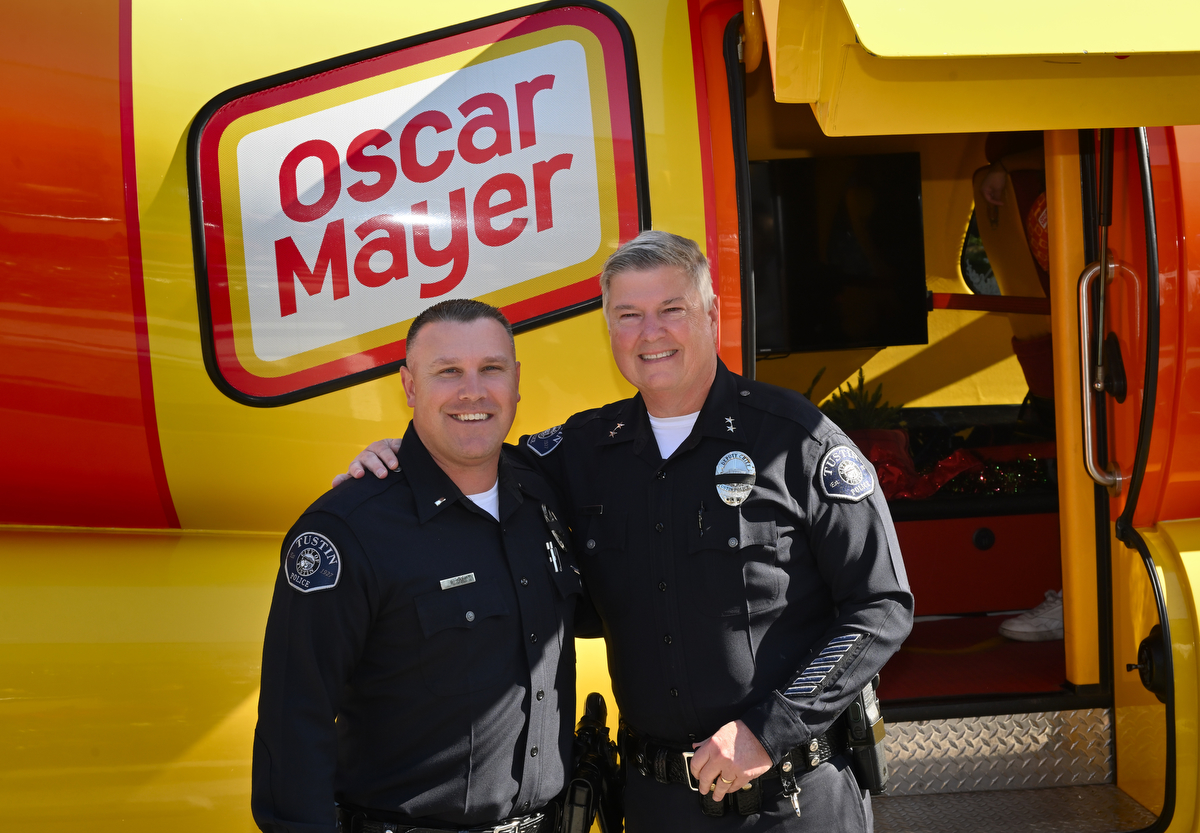
Tustin PD Lt. Ryan Coe, left, with Retiring Deputy Chief Robert Wright in front of the Oscar Mayer Wienermobile.
Photo by Steven Georges/Behind the Badge
 Behind the Badge
Behind the Badge
